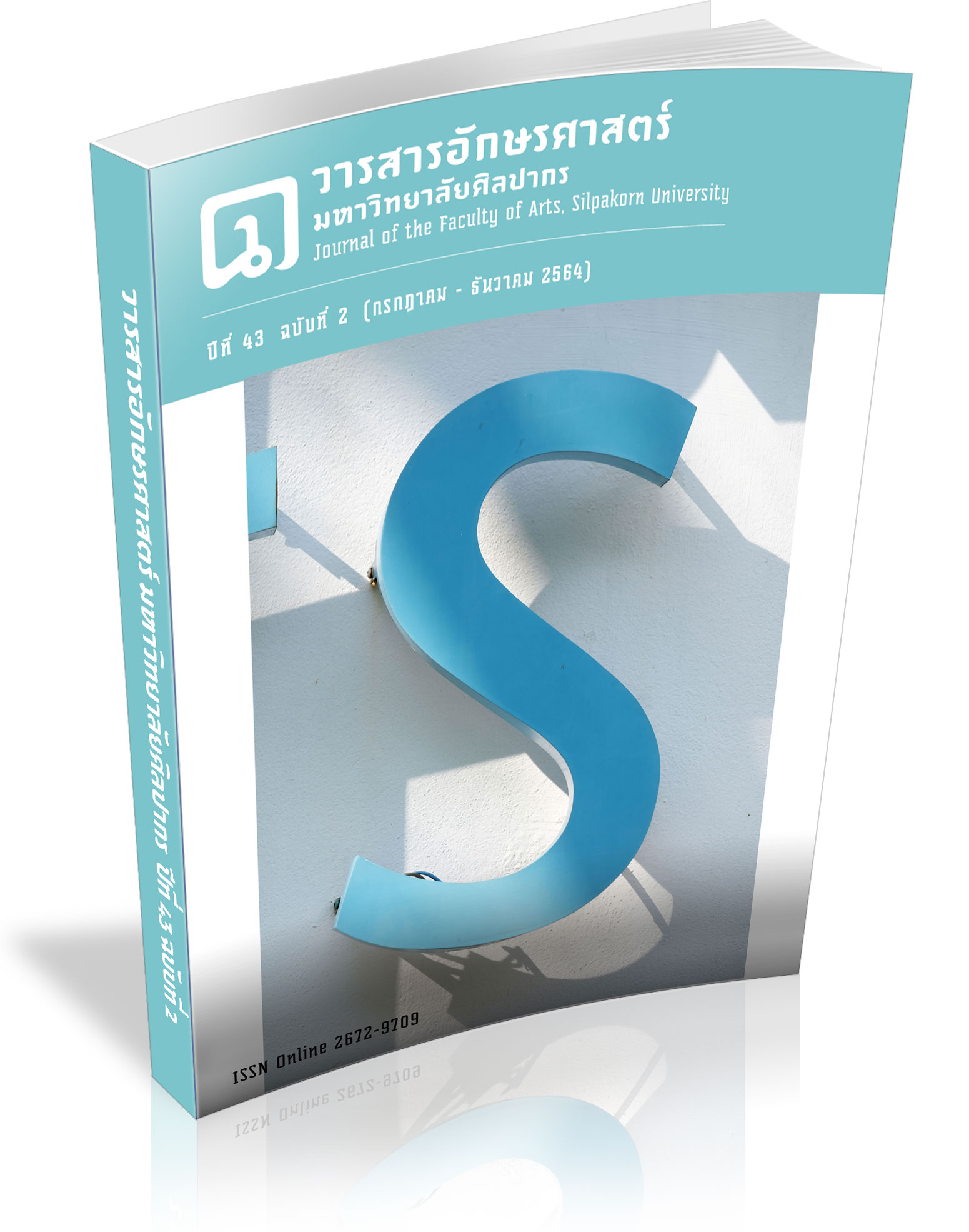Nāndī in " Vāsantikasvapna"
Keywords:
Nandi, Sanskrit drama, Vasantikasvapna, AdaptationAbstract
This article aims to study “Nāndī” in the Sanskrit play “Vāsantikasvapna”, which is adapted from William Shakespeare's English play "A Midsummer Night's Dream". This play follows Sanskrit drama rules i.e.composition in prosody namely in śārdūlavikrīḍita, using register and meter with auspicious meanings, using rhetoric which can be classified as Patrāvalī. In addition, other special elements are found, such as the absence of words of worship, praise to a particular deity, and bestowing auspiciousness to its audience, such as ancient Sanskrit poets. This absence could be because the poet wanted to express his admiration for the teachings of the Upaniṣads, who value essence by liberation from transmigration. Moreover, there are traces of implications which can be considered as resistance against British imperialism through literary techniques such as pattern and use of poetic wisdom. In reality, the poet wants to raise the anti-colonialist awareness of the Indian scholars.
Downloads
References
Chaudhuri, S. Shakespeare in India (4). Internet Shakespeare Editions. University of Victoria, NaN. Retrieved 15 February 2020, from https://internetshakespeare.uvic.ca/Library/Criticism/shakespearein/india4/index.html
Keith, A. B., & DCL, D. I. (1924). Sanskrit Drama in Its Origins, Development, Theory and Practice. Londres: Oxford University Press.
Kṣemendra. (1886). KAVYAMALA, Part II. suvṛttatilaka ed. By Pandita Durgaprasāda and Kāshīnātha Pānduranga Parab. Bomby: The “Nirnaya Sāgara Press.
Nagasawasdi, A. (1979). "Nandi"in the Sanskrit Drama. Master Thesis, Chulalongkorn University, Thailand. (In Thai)
Na-Rangsi, S. (2002). Indian philosophy: Background and creed. Chulalongkorn University Press. (In Thai)
Piech, M. (2018). "Translation as a 'Translingual Act of Transcoding Cultural Material'. Two Plays by Shakespeare in Indian Languages in the Colonial Context". Zeitschrift Für Indologie Und Südasienstudien, 35, 133–168.
Raksamani, K. (2006). Analysis of Thai literature according to Sanskrit literary theory. Bangkok: Department of Oriental Languages, Faculty of Archeology, Silpakorn University. (In Thai)
Shakespeare, W., & Holland, P. (2008). A midsummer night's dream (Oxford Shakespeare). Oxford: Oxford University Press.
Shastri, S, (1961). The Laws and Practice of Sanskrit Drama, Chawkhamba SansKrit Studies, V.14. Varanasi: Vidya Vilas Press.
Sinsakun, T. (1999). "Cāurapañcāsikā: Fitty Stanzas on Secret Love Attributed to Bilhaṇa". Journal of Arts. 28 (September): 2-32. (In Thai)
Mukherjee, S. (2016). Shakespear and the Colonial Encounter in India in Eighteenth and Ninrteenth Centuries. Doctoral dissertation, University of Washington, Unites State.
Monier-Williams, S. M. (2008). A Sanskrit English Dictionary. Delhi: Motilal Banarsidass.
Unni, N. P. (1998). Natyasastra: text with introduction, English translation and indices in two volumes (Vol. 2). Nag Publishers.
Downloads
Published
How to Cite
Issue
Section
License
Copyright (c) 2021 Journal of the Faculty of Arts, Silpakorn University

This work is licensed under a Creative Commons Attribution-NonCommercial-NoDerivatives 4.0 International License.
ผู้เขียนบทความต้องยินยอมในข้อกำหนดต่าง ๆ ของวารสารก่อนส่งบทความตีพิมพ์



